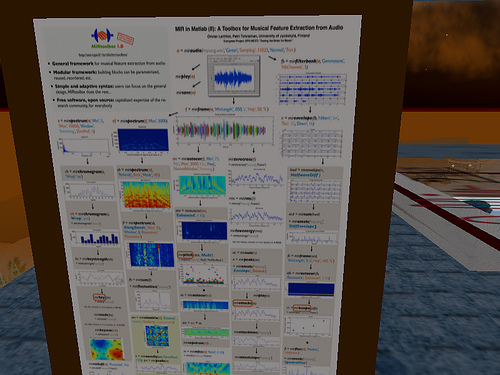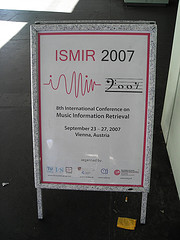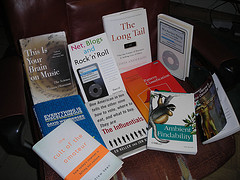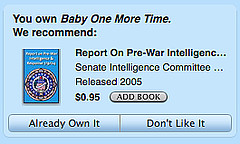
Amazonmp3.com has
launched. You can buy DRM free tracks for $.89, with 2 million to
chose from. Amazon thankfully provides a helper app that will
assist in moving the the track into iTunes. Since
Amazon knows about me, it was able to make recommendations right away
based on my several hundred previous (mostly non-music) purchases.
The recommendations seemed to be pretty good. I purchased KT Tunstualls
'Suddenly I See" - the track was variable bit encoding with an avg
encoding of 256 kbs.
Interestingly enough there's a number embedded in the mp3 ID3v1 tag:
Amazon.com: 202109900
I wonder if this is an ID unique to me, so they can track if/when I share the song with my friends.
Purchasing
a track from the Amazon store was incredibly easy. Amazon already has
my billing info so it was really a 2 click purchase (I had to click on a
terms of use box) - the terms of use tell you that you are not really buying a track, you are just licensing it.
That's
my 5 minute look at the Amazon store, so far it looks pretty
good. They really could give iTunes a run for their money. I
know I shall be shopping there for music before I go to iTunes.








